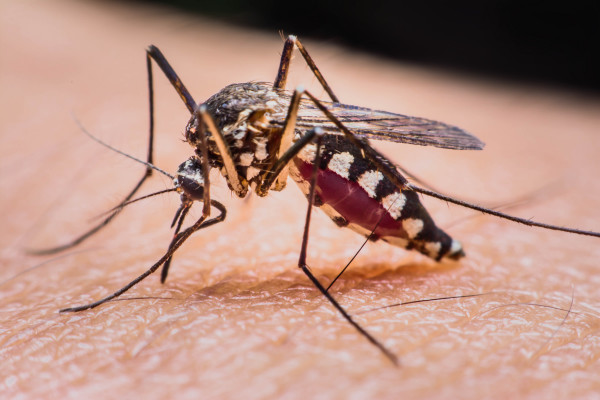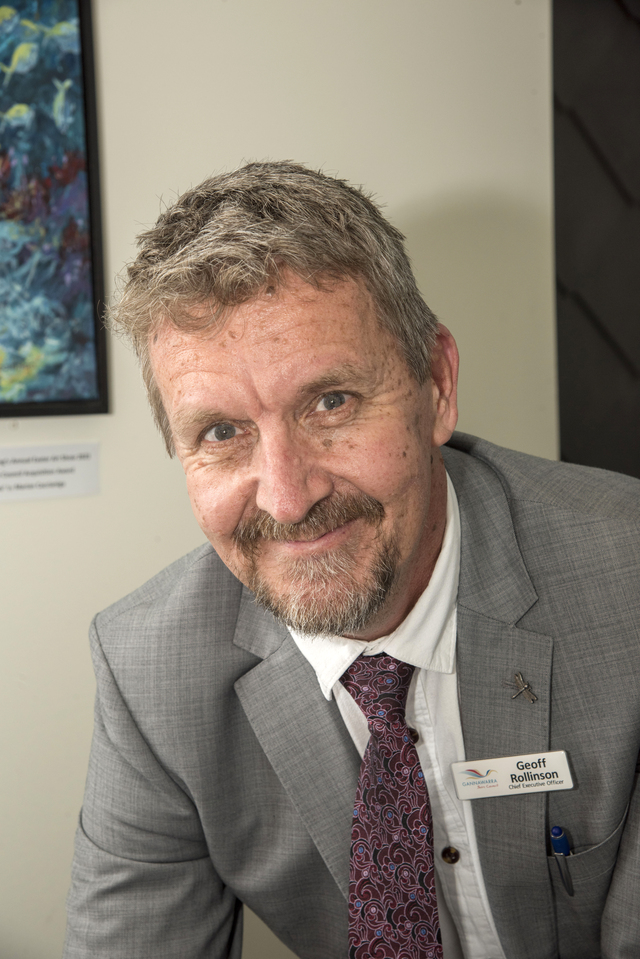GANNAWARRA Shire Council is playing a key role in mosquito surveillance as the Japanese encephalitis virus (JEV) turns deadly.
A man, aged in his 60s and from northern Victoria, became the first casualty of JEV on February 28.
The Health Department said investigations were underway into how he contracted the virus.
A man, aged in his 70s, from the Griffith area, also became the NSW’s first fatality from JEV on February 13.
The Victorian department cited patient privacy for not releasing more details about the Victorian death, however he’s not believed to have resided in the Gannawarra Shire.
JEV is a mosquito-borne virus that can cause encephalitis in around one per cent of cases who become infected.
It is transmitted by an infected mosquito-to-humans, not from human-to-human.
Most people who contract JEV will have no or very mild symptoms and fully recover but anyone who develops a sudden onset of fever, headache, vomiting as well as seizures or disorientation should seek urgent medical attention.
A JEV vaccine is available and is recommended for people who work with or around pigs, including transport workers or vets who visit pig farms and those who cull or hunt pigs.
Mosquito numbers are high in many parts of northern Victoria.
People with increased exposure to mosquitoes may be at a higher risk of infection, particularly people working or living on pig farms, or working or spending time outdoors.
Children aged under five and older people who become infected with JEV are at a higher risk of developing more severe illness, such as encephalitis.
Council acting chief executive Geoff Rollinson said residents should be alert but not alarmed following the outbreak of JEV.
“Council is working under the direction of the Department of Health and has been proactively involved in mosquito surveillance, trapping and sending trapped adult mosquitoes for virus isolation to the Department of Agriculture’s laboratory in Melbourne,” he said.
“Council is also part of the annual Victorian mosquito control program and is funded to deliver a mosquito monitoring and control program on behalf of the Department of Health each year. Council has trained environmental health staff in place to perform the tasks required.
Mr Rollinson said it is important to note that mosquitoes bred in warm stagnant water over the summer months.
“The cooler weather over the past week has reduced mosquito breeding and the number of adult mosquitoes in the environment has decreased considerably as a result,” he said.
Victoria Deputy Chief Health Officer Associate Professor Deborah Friedman said before now JEV had only ever been acquired overseas.
“This is the first time that Victoria has ever had locally acquired cases of Japanese encephalitis virus,” she said.
The virus has been present in Northern Australia for decades and was last detected in humans in the 1990s, however it has never been recorded in states further south until now, with experts believing the wet weather has contributed to the spread.
Infectious diseases physician and microbiologist Professor Collignon said the risk of the disease was greatest to people living in regional areas near pig farms or camping or trekking near wild pigs.
“This is not something I would panic over. We need to be concerned and alert. But I would not panic, particularly if you’re living in a city,” he said.
“The people who need to take more care of people who go camping along the rivers in the countryside and particularly people who live in or within a few kilometres of a pig farm.
THE human toll of the virus comes as it spreads into the Gannawarra Shire with a piggery in the shire one of six across Victoria.
The cases have also been located in the shires of Loddon, Campaspe, Wangaratta, Greater Shepparton and Greater Bendigo.
Agriculture Victoria staff are continuing surveillance activities and providing information and advice to farmers.
JEV occurs most commonly in pigs and horses and can cause reproductive losses for susceptible animal species.
Chief Veterinary Officer Dr Graeme Cooke urged anyone who owns pigs or horses to take steps to reduce exposure to mosquitoes.
“We encourage pig farmers and horse owners to eliminate mosquito breeding grounds near their animals, such as stagnant water, to reduce the chances of them being bitten,” Dr Cooke said.
Gannawarra Shire Council acting chief executive Geoff Rollinson said council was helping piggeries combat JEV under the direction of the Health Department.
“Council has undertaken site inspections at local piggeries impacted by Japanese encephalitis,” he said.
“These inspections have occurred in close consultation with site managers and the Department of Agriculture.
“This work to date has included intensive trapping of adult mosquitoes at and around these piggeries and sending the adult mosquitoes trapped for virus isolation to the Department of Agriculture’s laboratory in Melbourne.”
Pork meat or pork products are safe to consume.
The Gannawarra Times approached piggeries in the shire, but declined to be interviewed.
HOW TO PREVENT INFECTION
The best way to prevent infection is to take precautions against getting bitten by mosquitoes:
– Avoid going outdoors at dawn and dusk, and close to wetland and bushland areas.
– Wear long sleeves and pants outdoors
– Use repellent and reapply after swimming
– If camping, ensure the tent has fly screens to prevent mosquitoes entering.
– Mosquito coils and other devices that release insecticides can also be useful.







